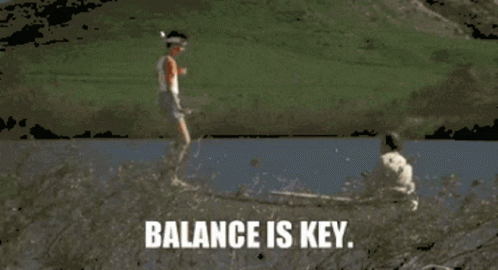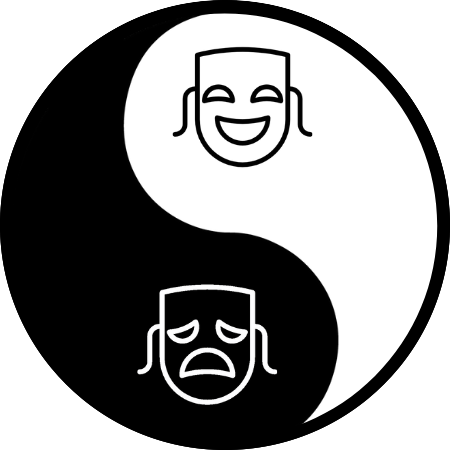Addressing the Effort-Reward Imbalance
Ah... Feeling seen by science... There ain't anything quite like it...
As humans, our work lives matter. As actors, this is arguably doubly true, given how fine the line between "actor" and "the person who acts" is. But Muggles and actors alike, how we spend 40+ hours a week for 40+ years of our life understandably impacts our health and well-being.
Late last year, we came across the Effort-Reward Imbalance theory of occupational stress, and our reaction was pretty much the 🤯 emoji. We were floored by how accurately it described the actor's experience and how validating it was to have languaging for it. So, here's a brief intro to the Effort-Reward Imbalance theory, how it relates to those of us on the actor's path, and some thoughts on how we may be able to address it.
The imbalance
The effort-reward imbalance theory provides a model for understanding and quantifying occupational stress. This theory states that those whose work demands significant effort but provides little reward (namely money, esteem, and job security[1]) in return are at greatest risk of poor physical health, mental health,[2] and even alcohol abuse and addiction to smoking.[3] [4] Since its development in 1986, the effort-reward imbalance model has gathered a sizeable body of empirical support in several socio-demographic populations.[5] [6]
We're yet to find this theory applied to actors, but those of us who are actors will read "significant effort and little reward" and think "story 👏 of 👏 ma 👏 life".
Our experiences are backed by research, too. As we outlined in this article, reality for actors today equals:
"Characteristically brutal" schedules[7] and unrealistic performance standards[8] (i.e., significant effort)
+
Sub-minimum wage incomes[9] and unemployment rates of 75-90%[10] (i.e., little reward).
In sum, this – for the most part – is the story of our lives. It's highly likely you've already felt / are currently feeling the effects of the effort-reward imbalance inherent to the current structure of our industry.
Rebalancing
As awesome as it is to feel seen by science, the less-than-awesome news is that – to the best of our knowledge – this model hasn't yet been studied in actor populations. As a result, there aren't any evidence-based actor-specific solutions for us to plug and play.
(Update: If you're interested in taking the 16-item questionnaire to receive an effort-reward imbalance score, let us know. Professor Siegrist has very kindly given us permission to make this available to the Dojo community.)
Of further less-than-awesome news is that the lion's share of existing evidence-based solutions centre on organisational / top-down changes. That is, even if we politely stole these solutions, they'd be difficult for us to institute and scale from the bottom up.
Thus, the solutions available to us as individual actors are limited and based only on anecdotal evidence, but having them in our back pocket may prove better than nothing.
With all this in mind, here are offers for controlling the (very few) controllables:
- Get your "results" elsewhere.
- Sleep and rest. Step away from the actor's path on occasion.[11]
- Prioritise play. Life is to be enjoyed, not just endured.
- Invest in your relationships and social networks.[12]
- Seek out a mentor and / or adopt mentees.[13]
- Start to empower yourself financially to minimise money stress.

Attaining balance of any kind is hard, let alone when we're not equipped with any robust strategies for doing so.
But the psychological stressors we label, we lessen; so we hope that by bringing awareness to the effort-reward imbalance phenomenon – by giving it language and by validating the experience so many of us have – we've decreased its power, even if only a little. We'll keep you posted if we encounter future actor-centric studies or solutions, but, in the meantime, our virtual door remains open.
Thoughts / feedback / challenges? We'd genuinely love to hear.
Need some 1-On-1 attention? Book your coaching session today.
Citations:
[1] [2] [5] https://www.sciencedirect.com/science/article/pii/S0277953604003296
[6] https://www.sciencedirect.com/science/article/pii/S0277953604001613
[7] https://www.sciandmed.com/mppa/journalviewer.aspx?issue=1126&article=1283
[10] https://doi.org/10.1038/s41467-019-10213-0
[11] [12] [13] https://www.sciencedirect.com/science/article/pii/S0277953604001613
